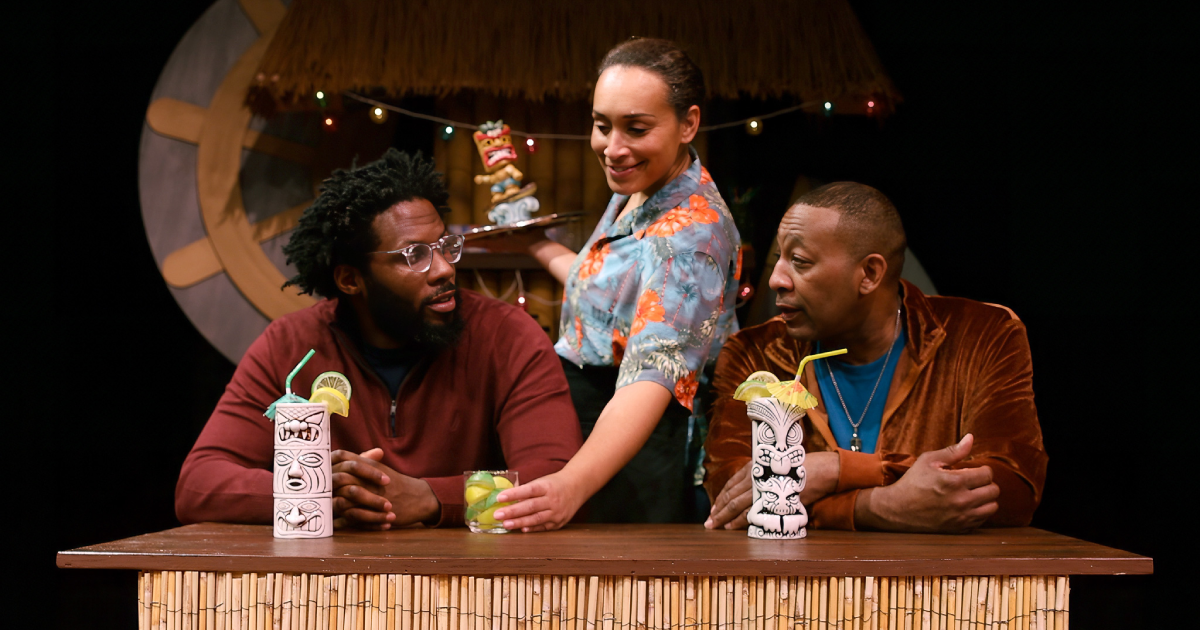When aging widow and retired school teacher Daisy Werthan — a stubborn, wealthy Jewish woman in 1948 Atlanta brought up to take care of herself — can no longer drive, her son Boolie hires “colored man” Hoke Coleburn to be her chauffeur, and what quietly unfolds could only be born of that particular time and place.
Driving Miss Daisy is a uniquely American story, which is why Hope Summer Repertory Theatre has included it in its 46th season devoted to the American experience.
Alfred Uhry’s Pulitzer Prize-winning 1987 play of short, tight scenes is one of a trilogy of memory plays in which Uhry draws from his life growing up Jewish in Atlanta to tell a larger story of bigotry, race relations, and cultural shifts over the course of the 25 hottest years of Civil Rights in the American South.
The 1989 film adaptation starring Jessica Tandy and Morgan Freeman earned four Academy Awards including Best Picture, and extraordinary actors including Angela Lansbury, Vanessa Redgrave, and James Earl Jones have admirably brought the work to life on Broadway and London’s West End. The brilliance of the writing and strength of the characters have the potential to transcend stereotype and material that could otherwise feel sentimental and tired.
However, the Hope Summer Repertory production directed by Jon Cranney does not fulfill that potential.
The 90-minute production pleases its crowd with fairly simple technical choices and strong individual performances, but pacing and timing missteps keep the relationships unfolding on stage from becoming fully convincing and moving.
Mischa Aravena as son Boolie is sweet, warm and believable. Lois Markle is a strong and obstinate Daisy who never quite softens or shows real vulnerability even at the end of the play, though her compassion evolves and she ages remarkably through her changing movement and posture. Warren C. Bowles as Hoke effectively evokes both laughter and anger, and ages beautifully as well. But crucial high-valence intimate moments between them are often missed, so the build throughout the play falls flat. There shouldn’t be a dry eye in the house by the end, but that’s simply not the case here.
Joseph P. Flauto’s set is visually appealing and minimal, with the action and set changes downstage left limited to shifting small set pieces including three chairs and a steering wheel to signify a car. Lighting Designer Eric Van Tassell uses projected images to show places and dates that often seem unnecessary, though Andrew Vincent’s costumes are exquisite.
It’s quality work with some significant flaws, but more urgently: Why aren’t we raising tougher questions and advancing the dialogue about race in the theater, if not action in the world — even in Holland, Michigan?
This unlikely relationship between an old rich white lady who employs a black man to be her driver and proclaims him to be her “best friend” after years of service without regard for how he genuinely views her, it isn’t anti-racist in the ways we need. In 2017, it’s a feel-good production only for a certain kind of oblivious white person. And theater can, and should, be much more than that.
Driving Miss Daisy
DeWitt Theatre
141 E. 12th St., Holland
June 30-July 31
hope.edu




